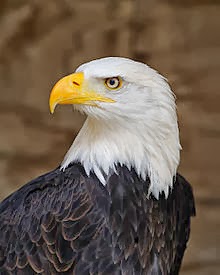- Legislative: The bicameral Congress, made up of the Senate and the House of Representatives, makes federal law, declares war, approves treaties, has the power of the purse, and has the power of impeachment, by which it can remove sitting members of the government.
- Executive: The president is the commander-in-chief of the military, can veto legislative bills before they become law (subject to Congressional override), and appoints the members of the Cabinet (subject to Senate approval) and other officers, who administer and enforce federal laws and policies.
- Judicial: The Supreme Court and lower federal courts, whose judges are appointed by the president with Senate approval, interpret laws and overturn those they findunconstitutional.
United States
viernes, 8 de noviembre de 2013
The United States is the world's oldest surviving federation. It is a constitutional republic and representative democracy, "in which majority rule is tempered by minority rights protected by law".The government is regulated by a system of checks and balances defined by the U.S. Constitution, which serves as the country's supreme legal document. For 2012, the US ranked 21st on the Democracy Index and 19th on the Corruption Perceptions Index.
Environmental issues
Environmental issues: have been on the national agenda since 1970. Environmental controversies include debates on oil and nuclear energy, dealing with air and water pollution, the economic costs of protecting wildlife, logging and deforestation, and international responses to global warming. Many federal and state agencies are involved. The most prominent is the Environmental Protection Agency (EPA), created by presidential order in 1970. The idea of wilderness has shaped the management of public lands since 1964, with the Wilderness Act. The Endangered Species Act of 1973 protects threatened and endangered species and their habitats, which are monitored by the United States Fish and Wildlife Service.
Religion
Religion : The First Amendment of the U.S. Constitution guarantees the free exercise of religion and forbids Congress from passing laws respecting its establishment. Christianity is by far the most common religion practiced in the U.S., but other religions are followed, too.
In a 2002 study, 59% of Americans said that religion played a "very important role in their lives", a far higher figure than that of any other wealthy nation.
In a 2009 Gallup poll, 42% of Americans said that they attended church weekly or almost weekly; the figures ranged from a low of 23% in Vermont to a high of 63% in Mississippi.
In a 2002 study, 59% of Americans said that religion played a "very important role in their lives", a far higher figure than that of any other wealthy nation.
In a 2009 Gallup poll, 42% of Americans said that they attended church weekly or almost weekly; the figures ranged from a low of 23% in Vermont to a high of 63% in Mississippi.
Climate
Climate : with its large size and geographic variety, includes most climate types. To the east of the 100th meridian, the climate ranges from humid continental in the north to humid subtropical in the south. The southern tip of Florida is tropical, as is Hawaii. The Great Plains west of the 100th meridian are semi-arid. Much of the Western mountains are alpine. The climate is arid in the Great Basin, desert in the Southwest, Mediterranean in coastal California, and oceanic in coastal Oregon and Washington and southern Alaska. Most of Alaska is subarctic or polar. Extreme weather is not uncommon—the states bordering the Gulf of Mexico are prone to hurricanes, and most of the world's tornadoes occur within the country, mainly in the Midwest's Tornado Alley.
Economy
Economy : The United States has a capitalist mixed economy, which is fueled by abundant natural resources, a well-developed infrastructure, and high productivity. According to the International Monetary Fund, the U.S. GDP of $15.1 trillion constitutes 22% of the gross world product at market exchange rates and over 19% of the gross world product at purchasing power parity (. Though larger than any other nation's, its national GDP was about 5% smaller at PPP in 2011 than the European Union's, whose population is around 62% higher. The country ranks ninth in the world in nominal GDP per capita and sixth in GDP per capita at PPP. The U.S. dollar is the world's primary reserve currency.
The United States is the largest importer of goods and second largest exporter, though exports per capita are relatively low. In 2010, the total U.S. trade deficit was $635 billion. Canada, China, Mexico, Japan, and Germany are its top trading partners. In 2010, oil was the largest import commodity, while transportation equipment was the country's largest export. China is the largest foreign holder of U.S. public debt.
The United States is the largest importer of goods and second largest exporter, though exports per capita are relatively low. In 2010, the total U.S. trade deficit was $635 billion. Canada, China, Mexico, Japan, and Germany are its top trading partners. In 2010, oil was the largest import commodity, while transportation equipment was the country's largest export. China is the largest foreign holder of U.S. public debt.
Education
American public education is operated by state and local governments, regulated by the United States Department of Education through restrictions on federal grants. In most states, children are required to attend school from the age of six or seven (generally, kindergarten or first grade) until they turn 18 (generally bringing them through twelfth grade, the end of high school); some states allow students to leave school at 16 or 17.About 12% of children are enrolled in parochial or nonsectarian private schools. Just over 2% of children arehomeschooled. The US spends more on education per student than any nation in the world.
Suscribirse a:
Comentarios (Atom)






